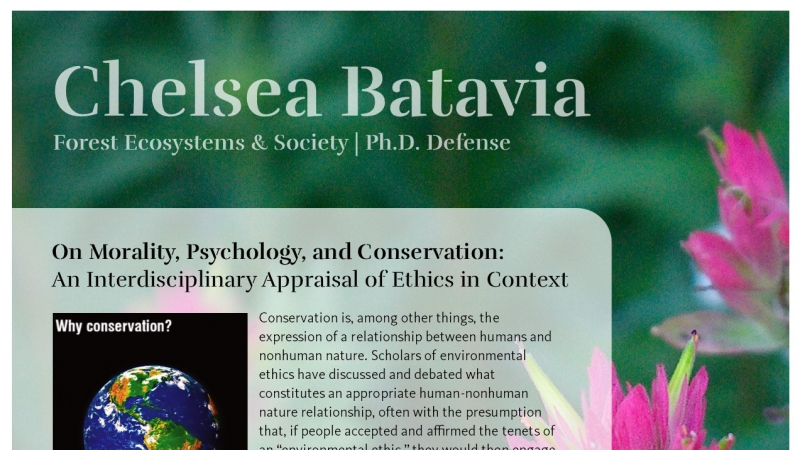
UPDATED TIME: 2 PM
Chelsea Batavia, Ph.D. Defense
Presenting her dissertation, "On Morality, Psychology, and Conservation: An Interdisciplinary Appraisal of Ethics in Context"
Monday, March 4, 2 PM, ALS 4001
Major professor: Michael Paul Nelson
Conservation is, among other things, the expression of a relationship between humans and nonhuman nature. Scholars of environmental ethics have discussed and debated what constitutes an appropriate human-nonhuman nature relationship, often with the presumption that, if people accepted and affirmed the tenets of an “environmental ethic,” they would then engage in more environmentally sustainable conduct. In this way, a clear link is presumed between our ethical commitments and manifest behaviors. Recently, many in the conservation community have expressed a similar presumption. Proponents of “new conservation” and/or the “ecosystem services” framework often assume 1) that people are largely anthropocentric, and therefore 2) that emphasizing the human benefits provided by nonhuman nature will most effectively elicit social support for conservation. This line of reasoning again presupposes that support for conservation (a form of human behavior) is directly motivated by people’s ethical commitments. Each in their own ways, environmental ethicists and new conservationists/ecosystem services enthusiasts attribute a strong behavioral influence to morality, largely disregarding the complex tapestry of social, situational, and psychological factors that also shape human behavior. The overarching objective of Chelsea’s dissertation is to appraise how this larger context affects not only the expression but also the content of our ethical commitments, specifically as they pertain to conservation.
